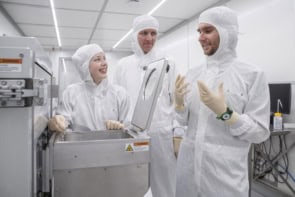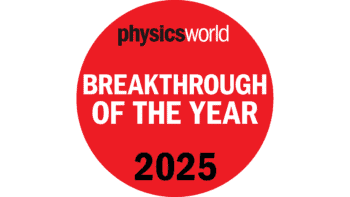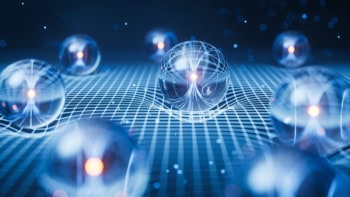The second instalment in our series of videos features two leading physicists in the field of spintronics – Albert Fert and David Awschalom. Both were interviewed at the Royal Society‘s recent discussion meeting The Spin on Electronics, where we also recorded a selection of video “vox pops” with speakers and attendees.
The first interview is with David Awschalom of the University of California, Santa Barbara. If you are new to spintronics – or if you are wondering what all the excitement is about – Awschalom provides a fantastic introduction to the field and explains how electron spin could be harnessed to create very dense computer memories and even quantum computers.
Awschalom also outlines the challenges that must be overcome before we see the next generation of spintronics devices and explains how he is addressing some of these in his lab.
Nobel laureate looks to the future
The second interview is with Albert Fert of the Université Paris-Sud, Orsay, who shared the 2007 physics prize for his discovery of giant magnetoresistance. Not content to rest on his laurels, Fert spoke about his current research projects, which include the development of spintronics-based tuneable microwave sources that could someday be exploited in mobile phones and other consumer electronics.
If you store lots of multimedia on your computer, Fert is one person you should thank. He also told me how his research in pure and applied physics was picked up and commercialized by IBM into highly sensitive read heads for hard drives.
Vox pops
Last, but by no means least, we made a “vox pops” video of short interviews with a wide range of people at the meeting.
For example, spintronics guru and meeting organizer Stuart Parkin of IBM Almaden describes how a spintronics racetrack memory works; Ian Appelbaum of the University of Maryland explains why humble silicon could be the material of choice for future spintronics circuits; and Theo Rasing of Radboud University in the Netherlands talks about his lab’s recent successes in flipping spins very quickly using laser light.
And if you are considering a career in spintronics, you can hear several PhD students explain why they find the field so exciting.



